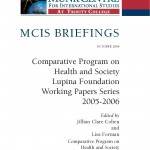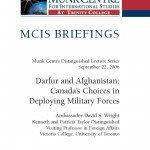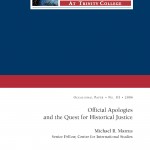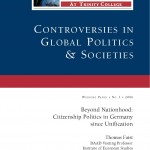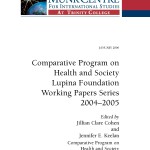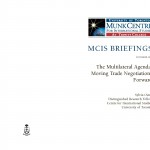Comparative Program on Health and Society Lupina Foundation Working Papers Series 2005-2006
October 6, 2006
Diversity is in vogue. But should it be as celebrated in philosophy of science as it is in the political domain? In this paper, I argue that diversity is vital to good science and, in particular, to good medical research, and that the evidence-based medicine movement has detracted from diversity within medicine.
Read full entry